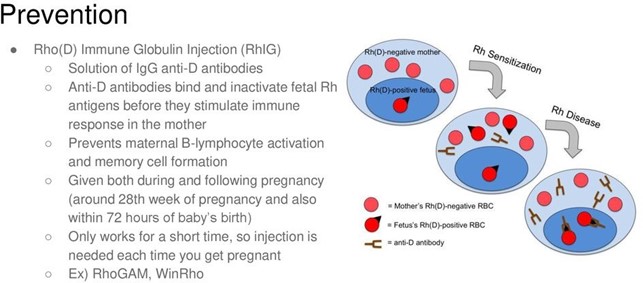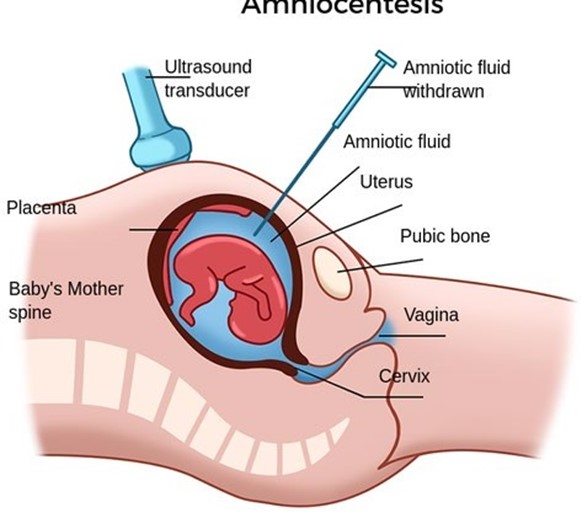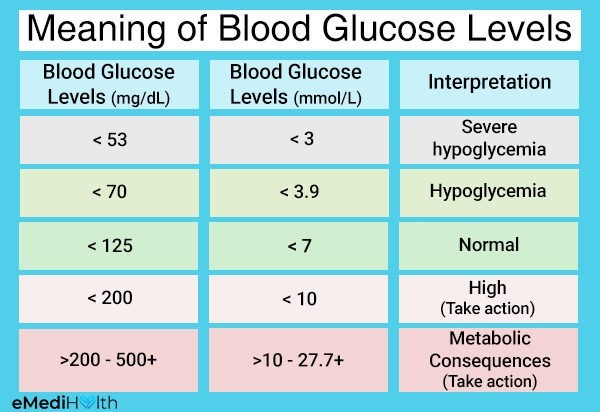A postpartum client who is Rh-negative refuses to receive Rho(D) immune globulin after the delivery of an infant who is Rh-positive. Which information should the practical nurse (PN) provide this client?
The R-positive factor from the fetus threatens her blood cells.
The mother should receive Rho(D) immune globulin when the baby is Rh-negative.
Rho(D) immune globulin is not necessary unless all pregnancies are Rh-positive.
Rho(D) immune globulin prevents maternal antibody formation for future Rh-positive babies.
The Correct Answer is D
When a Rh-negative mother gives birth to a Rh-positive baby, there is a risk that the mother's immune system will develop antibodies against the Rh-positive factor. These antibodies can cross the placenta in future pregnancies and atack the Rh-positive fetus, leading to hemolytic disease of the newborn. Rho(D) immune globulin is given after delivery to prevent the formation of these antibodies. The PN should explain this to the client and encourage her to reconsider her refusal of the treatment. Answers A, B, and C are incorrect and do not provide accurate information.

Nursing Test Bank
Naxlex Comprehensive Predictor Exams
Related Questions
Correct Answer is B
Explanation
Amniocentesis is a prenatal test that can diagnose genetic disorders and other health issues in a fetus. A provider uses a needle to remove a small amount of amniotic fluid from inside your uterus, and then a lab tests the sample for specific conditions². It is important to empty your urinary bladder prior to the procedure ².

Correct Answer is A
Explanation
The practical nurse (PN) should obtain a serum glucose level to assess the client's blood sugar level, which can help to determine if the client is experiencing hyperglycemia or diabetic ketoacidosis (DKA). Anorexia, drowsiness, and polydipsia, along with the reported frequent urination and bedwetting, are symptoms of hyperglycemia or DKA.
Offering age-appropriate toys (B) or suggesting diapers for bedtime use (C) are not appropriate actions for the PN to take in this situation.
Bringing orange juice and crackers (D) may help to increase the client's blood sugar level in the short term, but it does not address the underlying issue and may exacerbate the client's symptoms if she is experiencing hyperglycemia or DKA.

Whether you are a student looking to ace your exams or a practicing nurse seeking to enhance your expertise , our nursing education contents will empower you with the confidence and competence to make a difference in the lives of patients and become a respected leader in the healthcare field.
Visit Naxlex, invest in your future and unlock endless possibilities with our unparalleled nursing education contents today
Report Wrong Answer on the Current Question
Do you disagree with the answer? If yes, what is your expected answer? Explain.
Kindly be descriptive with the issue you are facing.
